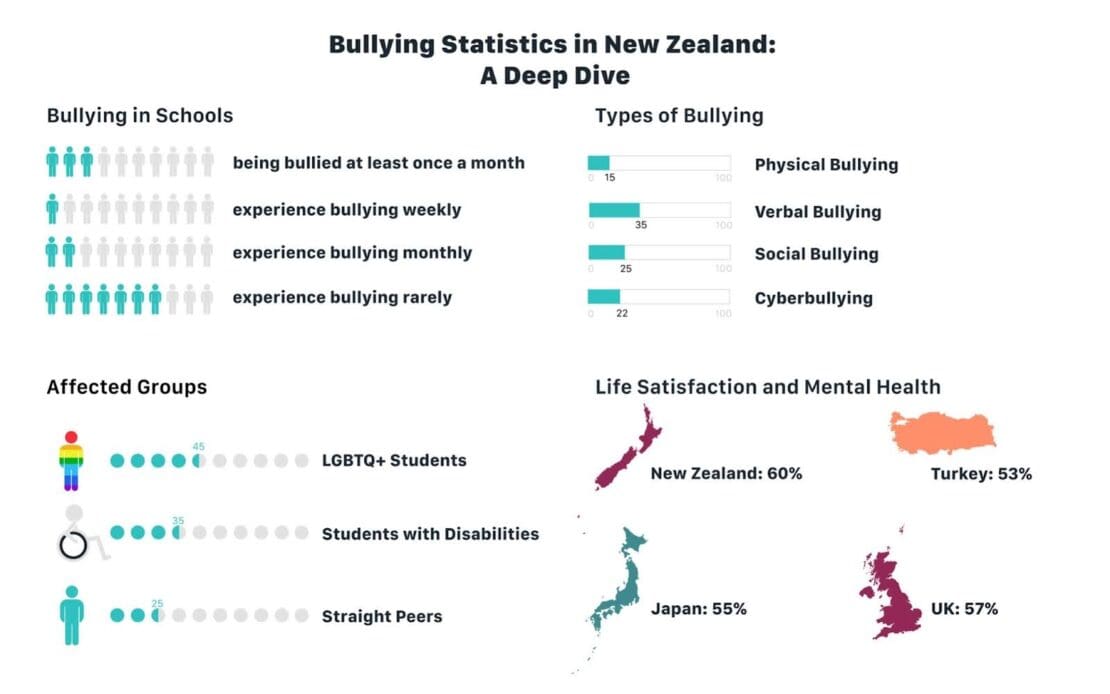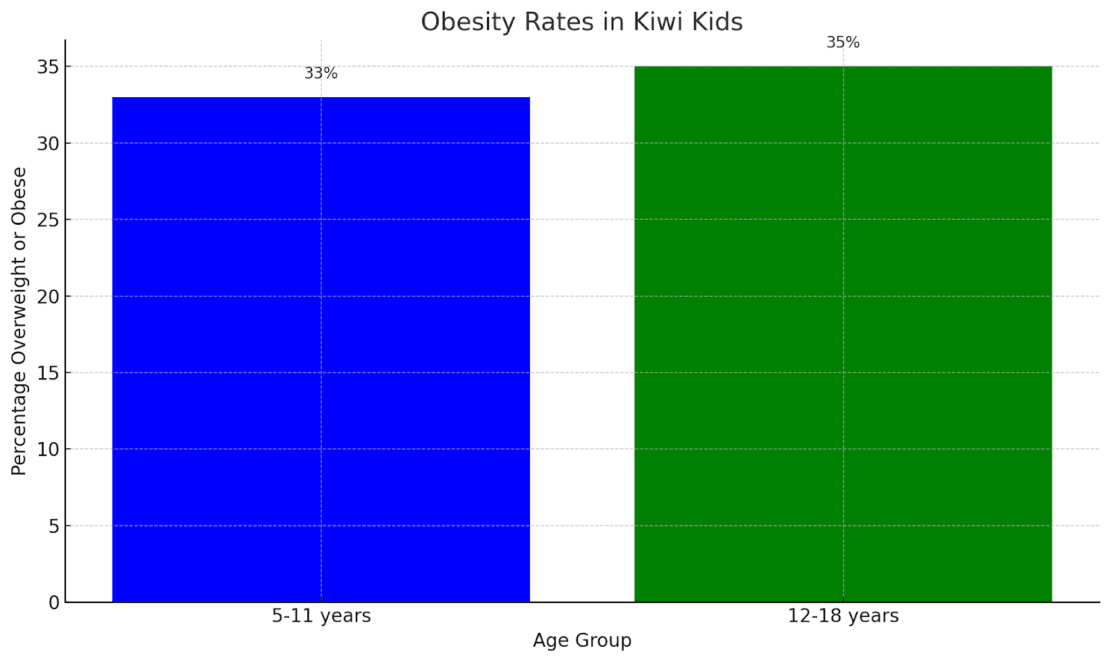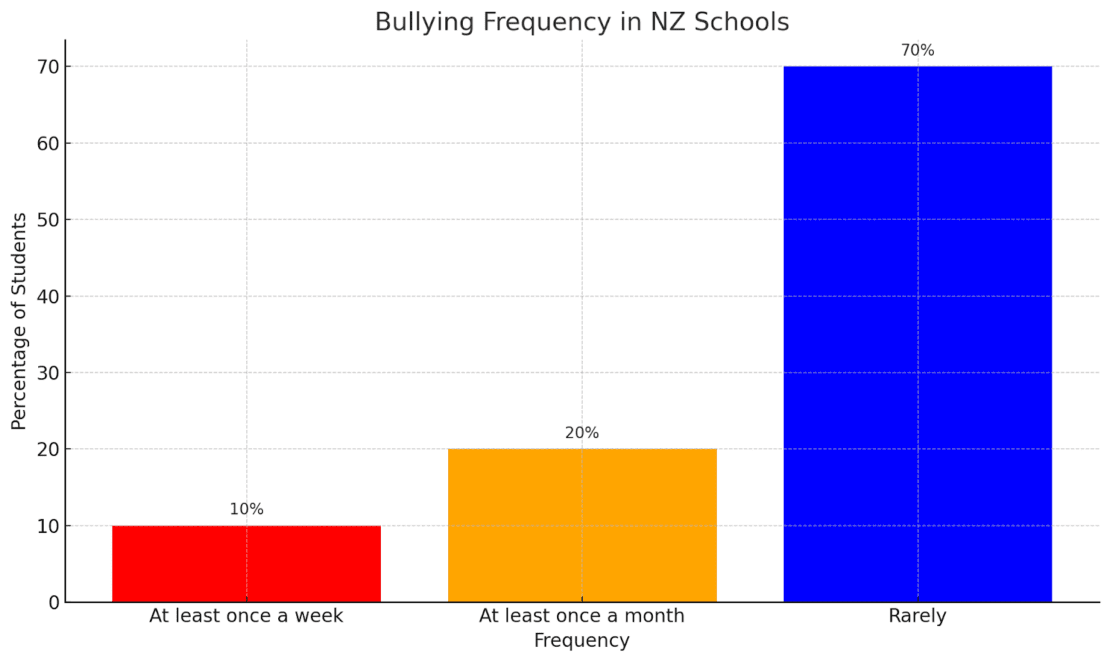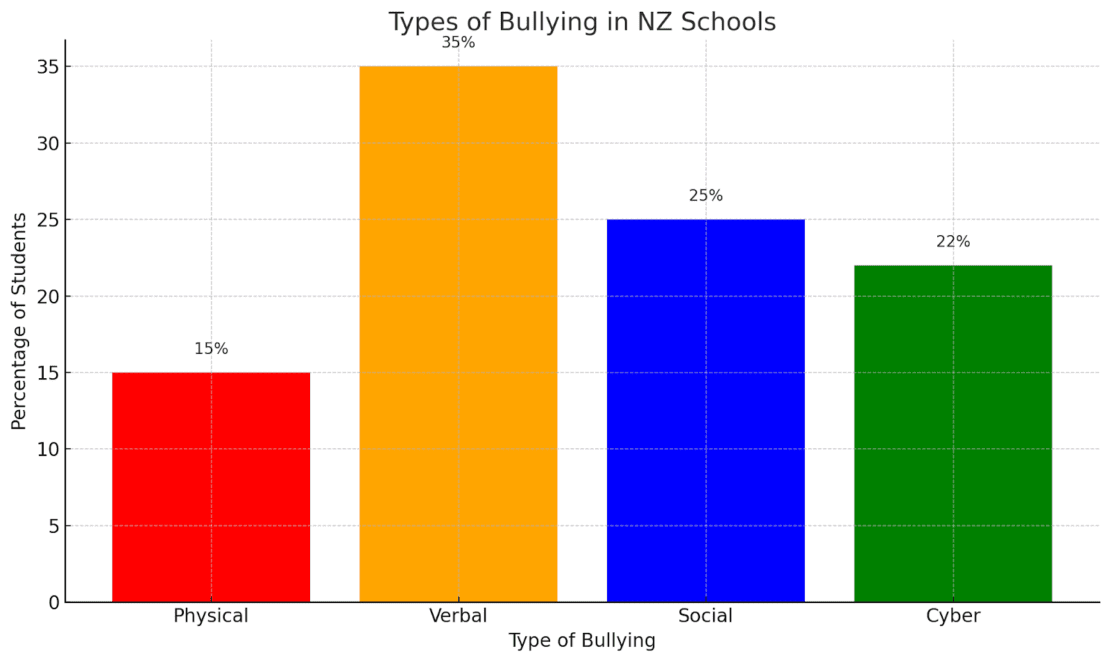Bullying Statistics in New Zealand: A Deep Dive
Written by Mark Dash | Last updated: August 3, 2024
Under a Creative Commons license (sharable with link attribution)
Bullying in schools is a significant concern worldwide, and New Zealand is no exception. This report delves into the prevalence of bullying in Kiwi schools, exploring its various forms, its impact on students, and the measures being taken to combat it. By examining the statistics and the stories behind them, we aim to shed light on this critical issue and encourage efforts to create safer school environments for all children.

Mental Health and Well-being of Kiwi Kids: A Look at the Numbers
Globally, less than four-fifths of children report being satisfied with their lives. In countries like Turkey, Japan, and the United Kingdom, life satisfaction among kids is alarmingly low, with Turkey at the lowest globally with only 53%. Similarly, in New Zealand, many children struggle with mental health issues, exacerbated by factors such as a lack of family support or being victims of bullying.
Table 1: Life Satisfaction of Kids Worldwide
| Country | Percentage Satisfied |
| Turkey | 53% |
| Japan | 55% |
| United Kingdom | 57% |
| New Zealand | 60% |
New Zealand also faces a high teen suicide rate among affluent nations, with suicide being a leading cause of death for teens aged 15-19. Only Lithuania has a higher rate, with Estonia following New Zealand.
Physical Health: Tackling Obesity and Mortality
Over the years, we’ve seen a spike in obesity and overweight kids. About one in three Kiwi kids is dealing with this issue, and it’s climbing fast in Southern Europe too. It’s a worry, alright?
Table 2: Obesity Rates in Kiwi Kids
| Age Group | Percentage Overweight or Obese |
| 5-11 years | 33% |
| 12-18 years | 35% |
When it comes to child mortality, more than a quarter of rich countries still have rates above 1 in 1,000. We’ve got to do better to keep the kids safe and healthy.

Skills and Education: How Do The Kids Perform?
Here’s something to mull over – by the age of 15, about 40% of kids in OECD and EU countries lack basic reading and math skills. In Bulgaria, Romania, and Chile, the numbers are the worst. But hey, in Estonia, Ireland, and Finland, kids are smashing it.
Back home in New Zealand, about one in five kids isn’t confident in their social skills. They find it hard to make new mates, and that’s not on. The least confident kids are in Chile, Japan, and Iceland.
Table 3: Basic Skills in Kiwi Kids
| Skill | Percentage Lacking Basic Skills |
| Reading | 35% |
| Mathematics | 40% |
Table 4: Confidence in Social Skills
| Country | Percentage Not Confident |
| Chile | 30% |
| Japan | 28% |
| Iceland | 27% |
| New Zealand | 25% |
Bullying in Kiwi Schools: The Raw Numbers
First off, let’s take a squiz at the sheer numbers. A study by the New Zealand Council for Educational Research (NZCER) found that a whopping 30% of students reported being bullied at least once a month. That’s almost one in three! If you think about it, that’s like having one kid in nearly every row in a classroom feeling the pinch of bullying on the reg.
Bullying Frequency in NZ Schools
| Frequency | Percentage of Students |
| At least once a week | 10% |
| At least once a month | 20% |
| Rarely | 70% |
Crazy, right? And it gets even more gnarly when you look at the types of bullying. We’re not just talking about the old-school punch-ups; there’s a whole lot more to it these days.

Different Flavours of Bullying
Bullying comes in all shapes and sizes. According to a report from Netsafe NZ, about 22% of students have been cyberbullied. That’s nearly a quarter of kids getting grief online. It’s not just the face-to-face stuff anymore; it’s happening behind screens, too.
Here’s a breakdown of the types of bullying students are dealing with:
- Physical Bullying: About 15% of students have been physically bullied. That’s the pushing, shoving, and scrapping.
- Verbal Bullying: A whopping 35% have been verbally bullied. That’s name-calling, taunts, and nasty comments.
- Social Bullying: Around 25% have been socially bullied. That’s the exclusion and spreading of rumours.
- Cyberbullying: Like we mentioned, 22% have copped it online.
Types of Bullying in NZ Schools
| Type of Bullying | Percentage of Students |
| Physical | 15% |
| Verbal | 35% |
| Social | 25% |
| Cyber | 22% |

Who’s Getting Bullied?
Now, let’s chew the fat about who’s getting bullied the most. Turns out, some groups are more likely to be targeted. The Ministry of Education’s Wellbeing at School survey shows that LGBTQ+ students and those with disabilities are more likely to get picked on. About 40% of LGBTQ+ students reported being bullied, compared to 25% of their straight peers. For students with disabilities, the rate was around 35%.
It’s a rough go for these kids, and it’s something we all need to be more aware of.
The Impact of Bullying
Alright, let’s yarn about the impact. Being bullied can really knock a kid’s confidence and muck up their school experience. According to a report by the Education Review Office (ERO), students who are bullied often feel unsafe at school, which can lead to a whole heap of issues like anxiety, depression, and even dropping out of school.
Impact of Bullying on Students
| Impact | Percentage of Affected Students |
| Feel unsafe at school | 45% |
| Anxiety | 30% |
| Depression | 25% |
| Dropping out | 10% |
What’s Being Done About It?
Schools in New Zealand are implementing programs like KiVa and PB4L (Positive Behaviour for Learning) to foster positive environments and equip students with the skills to stand up to bullying. The Ministry of Education is also enhancing support systems in schools by increasing the number of counselors and improving mental health resources. Community groups and parents are encouraged to participate actively in these efforts.
What Can You Do?
Everyone has a role to play in combating bullying. Parents, teachers, and students can all contribute by fostering open conversations, teaching empathy and respect, encouraging the reporting of bullying incidents, and supporting school and community programs.
Steps to Combat Bullying
| Step | Description |
| Open Conversations | Talk openly about bullying and its impact |
| Teach Empathy and Respect | Model respectful behaviour and empathy |
| Encourage Reporting | Make sure kids know how to report bullying |
| Support Programs | Get involved in school and community programs |
Wrapping It Up
Bullying in New Zealand schools is a critical issue that demands attention and action. By understanding the statistics and the underlying causes, and by supporting effective intervention strategies, we can work together to create safer and more inclusive school environments. For more detailed information, please refer to the following sources:
Thank you for your interest and commitment to addressing this important issue. Together, we can make a difference. Kia kaha!
